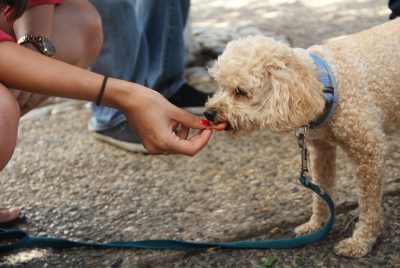Elder Pet Care: Keeping Your Senior Pet Comfortable and Happy
We may earn a commission for purchases made using our links. Please see our disclosure for more details.
Now that you have an elderly pet at home, you are beginning to observe certain changes in them. Maybe they’re a little greyer around the muzzle, or maybe they don’t bounce up the stairs as much as they used to. Pets slow down as they age, just like us, and require extra attention to ensure they have a comfortable and contented senior years. Taking care of an elderly pet is one of the most affectionate things we can do for them, but it also comes with a lot of responsibility. Let’s explore every aspect of caring for an elderly pet.
How Old is “Old,” Anyway?
To begin, what is the precise age at which your pet becomes “senior”? It differs by breed and species. Big dogs mature more quickly than small dogs, but most canines reach their senior years around age 7. In contrast, cats typically begin to exhibit signs of aging at the age of ten. You can better respond to your pet’s evolving demands if you are aware of their “age milestone.”
Spotting the Signs of Aging
One day, you’re tossing a ball across the yard, and they’re sprinting after it. The next, they’re content just watching it roll away. Aging can sneak up on our pets. If you’re noticing things like slower movement, grey hairs, or more naps than usual, those are the tell-tale signs that your buddy is in their senior years.
Time to Tweak That Diet
Older pets need a different diet—think of it as switching from fast food to balanced meals (we’ve all been there). Senior dogs and cats need fewer calories but higher-quality proteins to maintain their muscle mass without packing on extra weight. It’s a good idea to check with your vet on what type of food will keep your pet’s belly full and their weight in check.
Keeping an Eye on the Scale
Weight gain is a common issue for older pets. Too many extra pounds can add stress to their joints and even cut their life short. Weigh-ins, portion control, and a diet with a few less treats can help your pet stay fit. (It might mean fewer bacon-flavored rewards, but hey, it’s for their own good!)
Exercise: Shorter, Sweeter, and Still Important
No, they probably won’t be chasing squirrels for hours anymore, but light exercise is still super important. Short, gentle walks for dogs or some interactive playtime for cats can keep them agile without overdoing it. Think of it like stretching in the morning—it’s enough to keep them limber without leaving them sore.
Helping Out Their Joints
Just like your knees might creak a bit more nowadays, senior pets also tend to get stiff joints or arthritis. Supplements like glucosamine can help, but ask your vet before starting anything new. Also, consider adding soft bedding or ramps for pets that need a little help getting on the couch or up the stairs.
Don’t Forget the Teeth!
Dental care can be one of those things we let slip with our pets, especially as they get older. But trust me, it’s worth keeping up with! A lot of health issues can actually start with poor dental hygiene. Regular brushing or dental chews can go a long way (yes, I know it sounds like a hassle, but it’ll keep their breath fresh and prevent bigger issues down the road).
Routine Vet Visits: More Important Than Ever
For senior pets, a yearly check-up often isn’t enough. Most vets recommend twice-yearly visits to monitor any emerging health issues. Regular vet visits can catch problems early, and that’s key. After all, early detection can be the difference between a simple fix and something that becomes a bigger ordeal.
Losing Sight or Hearing
If your pet’s world seems a little blurrier or quieter, they might be losing their vision or hearing (hey, it happens to the best of us). Keep your home layout consistent so they’re not bumping into new obstacles. And remember, if you sneak up on them from behind, they might not hear you—don’t be surprised if they startle easily!
Making Your Home Elder-Friendly
Just like you’d child-proof for a toddler, you might want to “senior-proof” your home. Keep their food, water, and beds on one level if stairs are a challenge. Non-slip rugs can help prevent slipping on tile or hardwood floors, and a soft bed makes nap time all the better.
Keep Their Minds Sharp
Mental exercise is just as important as physical exercise! Consider puzzle toys or slow-feed bowls to keep their brains active. Even if they’re not as spry as they once were, they’ll love the mental challenge. (Imagine it like solving a Sudoku puzzle—it keeps them sharp without breaking a sweat.)
Grooming and Skin Care
Our pets might not worry about grey hair, but they do benefit from regular grooming. Older pets can have drier skin and might shed more, so brush them regularly. Brushing not only keeps their coat looking good but also lets you spot any lumps, bumps, or rashes early on. Plus, it’s a great bonding moment!
Behavioral Changes? Pay Attention
Sometimes, aging pets show unexpected changes in behavior. Maybe they’re more withdrawn, or maybe they’re acting grumpy. These can be signs of pain, anxiety, or even cognitive decline. Don’t ignore it! A quick chat with your vet can help figure out if something deeper is going on.
Dealing with “Accidents”
Yes, we’re talking about bladder control. As pets age, they sometimes struggle with incontinence. (It’s a little like house training all over again!) Make sure they have plenty of opportunities for bathroom breaks and consider using washable, pet-safe liners for their bedding.
Making Playtime Adaptable
Senior pets may not be up for a game of fetch that lasts an hour, but that doesn’t mean playtime’s over! Try gentler games, like a low-energy game of tug-of-war, or use interactive toys that don’t require much movement. This way, they still get to enjoy some fun without wearing themselves out.
Emotional Support: Be Their Comfort
Elderly pets can sometimes feel a bit more anxious. Maybe they get stressed when you’re not home, or they need a little more reassurance than they used to. Spend extra time with them, talk to them in a soothing voice, and offer lots of love—sometimes, that’s all they need to feel safe and content.
Help with Mobility Issues
If you’ve noticed your dog struggling to get into the car or your cat hesitating to jump up on their favorite perch, give them a helping hand. Adding a ramp or small stairs can make it easier for them to navigate your home. It’s all about giving them independence while making things accessible.
Cold Weather Comforts
Winter can be tough on older pets, especially if they’re dealing with joint pain. A heated bed or blanket can be a lifesaver on those chilly nights. Just imagine it like curling up with a warm cup of cocoa—it’s a little luxury that makes a big difference.
Don’t Forget the Water Bowl
Senior pets sometimes need a nudge to stay hydrated, which can be especially important for kidney and overall health. Try a pet fountain, which can make drinking more appealing with its constant flow of fresh, cool water. Hydration is key to keeping everything running smoothly!
Traveling with Your Senior Pet
Planning a trip with your aging pet? It might take a bit more thought now. Pack their favorite blanket, stick to their feeding schedule, and make sure they get plenty of breaks if it’s a road trip. Keeping things familiar can make the whole experience less stressful for them.
Recognizing End-of-Life Signs
It’s tough to think about, but there may come a time when your pet starts to show signs that they’re nearing the end. They may lose interest in food, become lethargic, or seem more withdrawn. Knowing the signs can help you make compassionate decisions about their care.
In a Nutshell
Caring for an elderly pet is a little like being a caring friend, a parent, and a nurse all rolled into one. It takes patience, love, and yes, a bit of extra effort. But seeing them comfortable, happy, and feeling safe is worth every moment. They’ve given us their unconditional love for so many years; taking care of them now is the least we can do.
Scientific Insights on Elder Pet Care: Key Research and Findings
“Pet Ownership Patterns and Successful Aging Outcomes in Community-Dwelling Older Adults”
Findings: This study examined pet ownership among healthy older adults and its relationship to cognitive and physical functions. It found that pet owners, particularly dog owners, exhibited better cognitive function and higher daily energy expenditure compared to non-owners. The study suggests that pet ownership may contribute to successful aging by promoting physical activity and cognitive health.
“Pros and Cons of Pet Ownership in Sustaining Independence in Community-Dwelling Older Adults: A Scoping Review”
Findings: This review mapped the benefits and drawbacks of pet ownership for older adults. Benefits included increased physical activity and enhanced well-being, while challenges encompassed grief from pet loss and potential risks like falls. The study emphasizes the need to balance these factors to support aging-in-place effectively.
“Understanding the Benefits, Challenges, and the Role of Pet Ownership in Older Adults”
Findings: This case study explored the role of pet ownership in the daily lives of older adults. It highlighted that pets provide companionship, a sense of safety, and positively influence mood. However, challenges such as financial costs and potential fall risks were also noted. The study suggests that aligning the characteristics of pets and their elderly owners can maximize benefits and minimize challenges.
Essential Products for Senior Pet Care Available on Amazon
Caring for an aging pet involves addressing their evolving needs with specialized products. Here are some top-rated items available on Amazon that can enhance the comfort and well-being of your senior companion:
- Joint Health Supplements
As pets age, joint health becomes a priority. Supplements like glucosamine and chondroitin can support mobility and alleviate discomfort.- YuMOVE Hip and Joint Supplement for Dogs
This supplement combines glucosamine, chondroitin, and omega-3s to support joint health in senior dogs.
- YuMOVE Hip and Joint Supplement for Dogs
- Senior-Specific Dog Food
Nutrition tailored for senior pets ensures they receive the necessary nutrients without excess calories.- Blue Buffalo Life Protection Formula Senior Dry Dog Food
Formulated with real chicken and brown rice, this recipe supports joint health and mobility in older dogs.
- Blue Buffalo Life Protection Formula Senior Dry Dog Food
- Dental Care Products
Maintaining dental hygiene is crucial to prevent oral diseases in senior pets.- Nylabone Advanced Oral Care Senior Dog Dental Kit
Designed for small senior dogs, this kit includes a toothbrush and toothpaste to help reduce plaque and tartar buildup.
- Nylabone Advanced Oral Care Senior Dog Dental Kit
- Mobility Assistance Harnesses
For pets experiencing mobility issues, support harnesses can aid in movement and reduce strain.- PetSafe CareLift Support Harness
This full-body lifting aid with handles assists pets with limited mobility, making it easier for them to move around.
- PetSafe CareLift Support Harness
- Comfortable Bedding
Providing a soft and supportive bed can alleviate joint pain and offer comfort.- Furhaven Orthopedic Dog Bed
This bed features bolsters and a washable cover, providing support and comfort for large senior dogs.
- Furhaven Orthopedic Dog Bed
- Cognitive Support Supplements
To support brain health and cognitive function in aging pets, consider specialized supplements.- CEVA Animal Health Senilife Nutritional Supplement
Formulated to help combat behavior changes associated with brain aging in senior dogs.
- CEVA Animal Health Senilife Nutritional Supplement
- Interactive Companion Pets
For elderly individuals who may not be able to care for a live pet, interactive companion pets can provide comfort and companionship.- JOY FOR ALL Ageless Innovation Companion Pet
This lifelike, realistic pet is designed to bring comfort and companionship to seniors.
- JOY FOR ALL Ageless Innovation Companion Pet
These products are designed to address common challenges faced by senior pets, enhancing their quality of life and ensuring they remain comfortable and happy in their golden years.
FAQs About Elder Pet Care
1. How often should I take my senior pet to the vet?
Most vets recommend a check-up every six months for senior pets. It’s a great way to catch any health issues early.
2. What health issues should I look out for in my senior pet?
Common issues include arthritis, dental problems, weight gain, and sometimes cognitive decline. If you’re noticing any changes, a vet visit is a good idea.
3. Can I still exercise my elderly pet?
Yes! Just dial down the intensity. Opt for shorter, gentle walks or low-energy playtime to keep them moving.
4. How can I make my home more comfortable for a senior pet?
Try adding ramps, non-slip mats, and soft bedding. Keeping everything accessible will make their lives much easier.
5. How do I know if my pet is in pain?
Behavioral changes like whining, limping, or decreased appetite can signal pain. Always consult your vet if you’re concerned.




